The 27th United Nations climate change conference, COP27, began this week, and will see leaders from around the world meet in Egypt to discuss how to tackle the climate crisis collectively.
In January 2020, Nottingham declared a Climate and Ecological Emergency and has been working towards being the first carbon neutral city in the UK by 2028 (CN28). Great progress has been made to date, and the most recent data shows a 57.7% reduction in carbon dioxide (CO2) emissions per person since 2005.
Here are some of the City Council’s trailblazing schemes that are making the city more sustainable.
Innovation in energy generation and storage
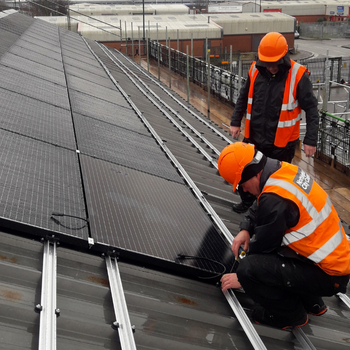
Nottingham is a pilot city for CleanMobilEnergy’s scheme to cut the carbon emissions and costs associated with charging electric vehicles. Through the project, solar panels to generate renewable energy and 40 innovative ‘bi-directional’ vehicle-to-grid (V2G) charging units will be installed at the council’s Eastcroft Depot. This will allow the growing number of electric vehicles in the council’s fleet to be used for energy storage and grid balancing.
The V2G chargers were installed recently, and a battery is due to be installed in November 2022. This project will see an estimated annual saving of 20 tonnes of CO2 and £10,000 in energy costs.
Greening transport through a ground-breaking trial

The City Council has been working with partners to develop the Wireless Charging of Electric Taxis (WiCET) trial. This Government-funded project has installed wireless charging equipment on to electric hackney carriages and into a taxi rank in Nottingham.
For this ‘first of its kind’ trial in the UK, five wireless systems have been installed at the main taxi rank near the train station, and nine electric hackney carriages have been fitted with wireless receiver pads.
The WiCET trial gives drivers the opportunity to wirelessly charge their vehicles while waiting for their next passengers. Drivers can use the rank for short, top-up charging bursts while they queue without needing to leave their vehicle.
Improving the energy efficiency of homes
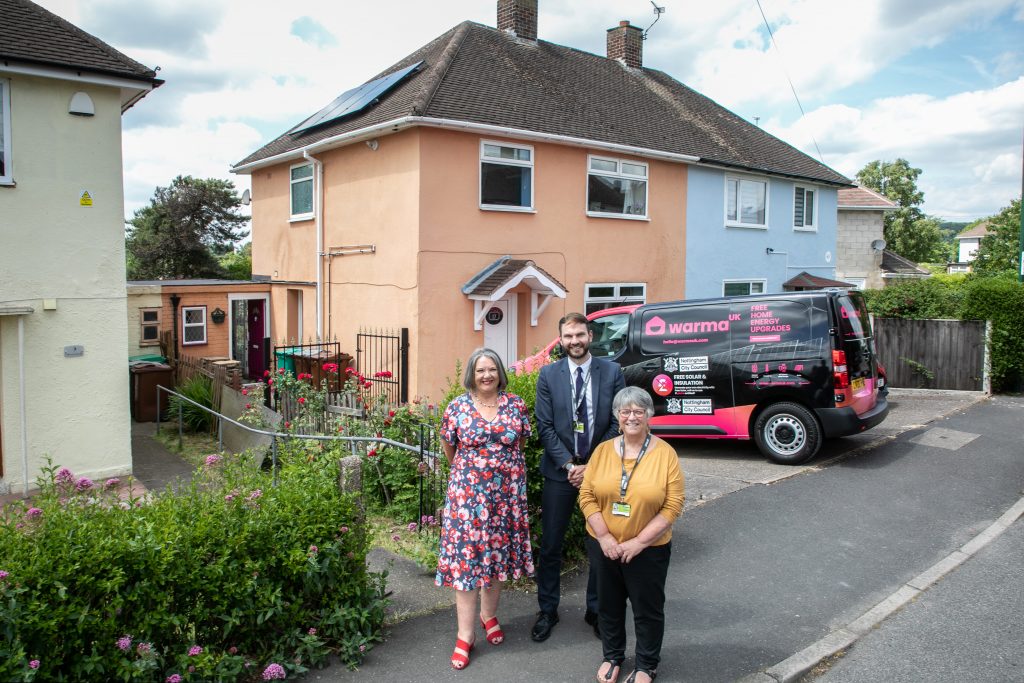
Domestic properties account for approximately 30% of Nottingham’s carbon emissions.
Through the Greener HousiNG schemes, the City Council is supporting residents to lower carbon emissions by making improvements to homes across the city. To date, over 13,000 measures have been installed in social and privately owned homes – including insulation, new windows and doors and renewable energy technologies, such as solar panels and air-source heat pumps.
Not only do these improvements have an environmental benefit, but they are also helping residents to feel more comfortable at home and to improve their physical health, as well as reducing their energy bills.
Reducing food waste through partnerships
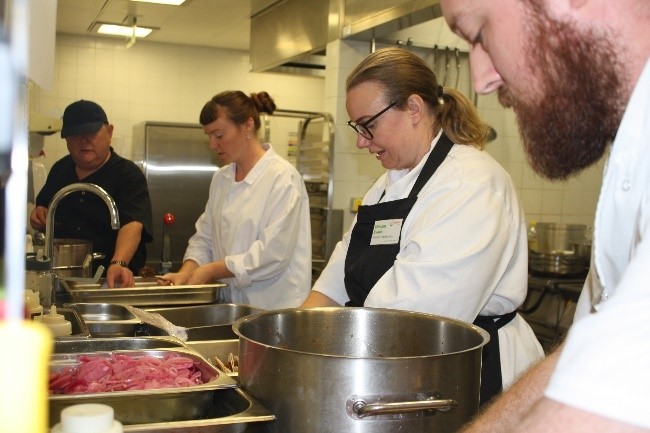
Nottingham City Council has joined forces with food redistribution charity FareShare Midlands to help produce meals for local people in need using food that would otherwise be thrown away.
The innovative project – a partnership between the city’s Catering Service, FareShare UK, FareShare Midlands and Sainsbury’s – turns an environmental problem into a social solution. The commercial kitchen at Loxley House, the council’s HQ, is being used to produce meals to be delivered directly to local charitable and not-for-profit organisations tackling hunger, poverty and the escalating effects of the cost of living crisis.
In full production, the kitchen team will prepare, process and cook 5,460kg of surplus foods to provide 13,000 meals per month.
Saving water across the council’s estate
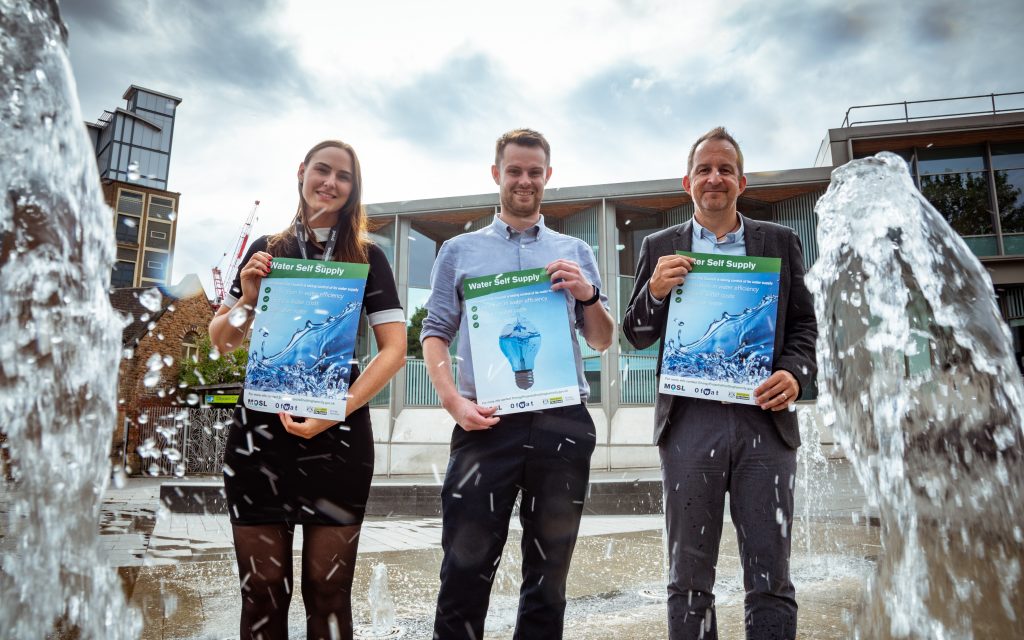
Making water safe to use and transporting it around the city produces carbon dioxide. The City Council became the first local authority to be granted a water self-supply licence in August 2019. This means that the council is its own supplier for its operational buildings (e.g. libraries, offices, leisure centres, and more). This gives the City Council greater control over water consumption while reducing waste and carbon emissions.
Increasing resilience from flooding
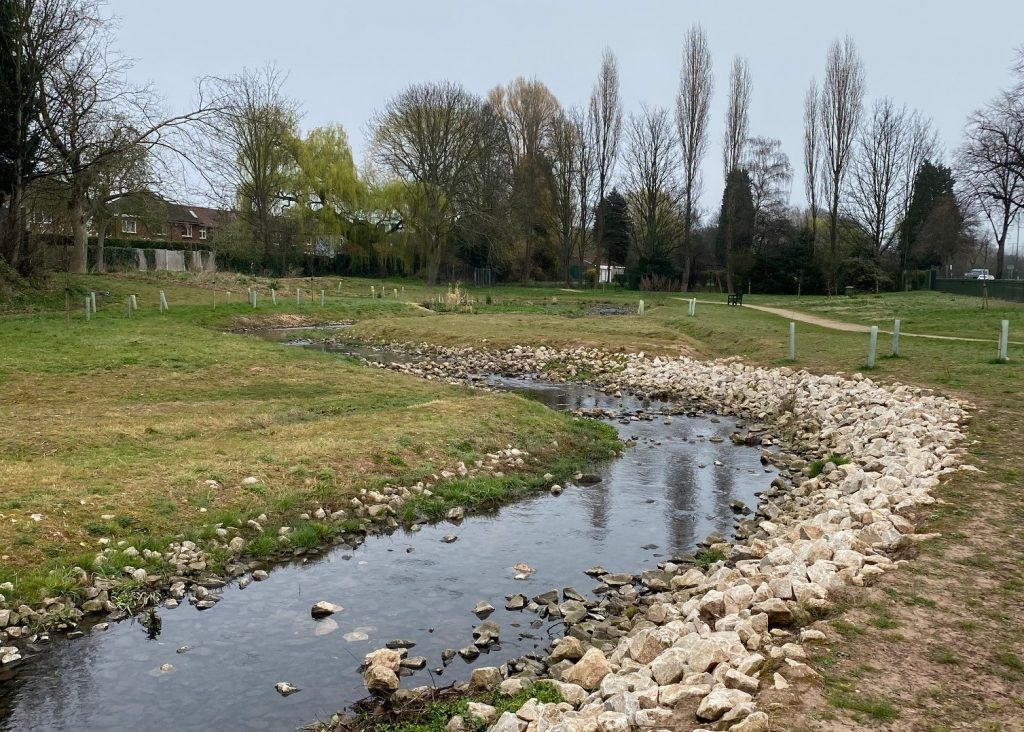
The climate crisis is making extreme weather events like heatwaves and flooding more common.
The City Council has been improving resilience to river flooding in Nottingham. Focusing on Jubilee Ponds, Valley Road Park and Jason Spencer Sports Ground, ponds were upgraded to store more water and the Day Brook was returned to a more natural state to slow the flow of water. This scheme has improved the habitat for wildlife, created new paths to improve public access and 160 homes are now better protected from the risk of flooding.
The City Council has also seen success in the delivery of sustainable drainage systems (SuDS). These systems are used to manage surface water by providing natural ways to capture rainfall causing floods. Nottingham City Council is currently working with Severn Trent Water to deliver SuDS projects, including at Quorn Grove and Haydn Road.
Planting thousands of trees to absorb CO2
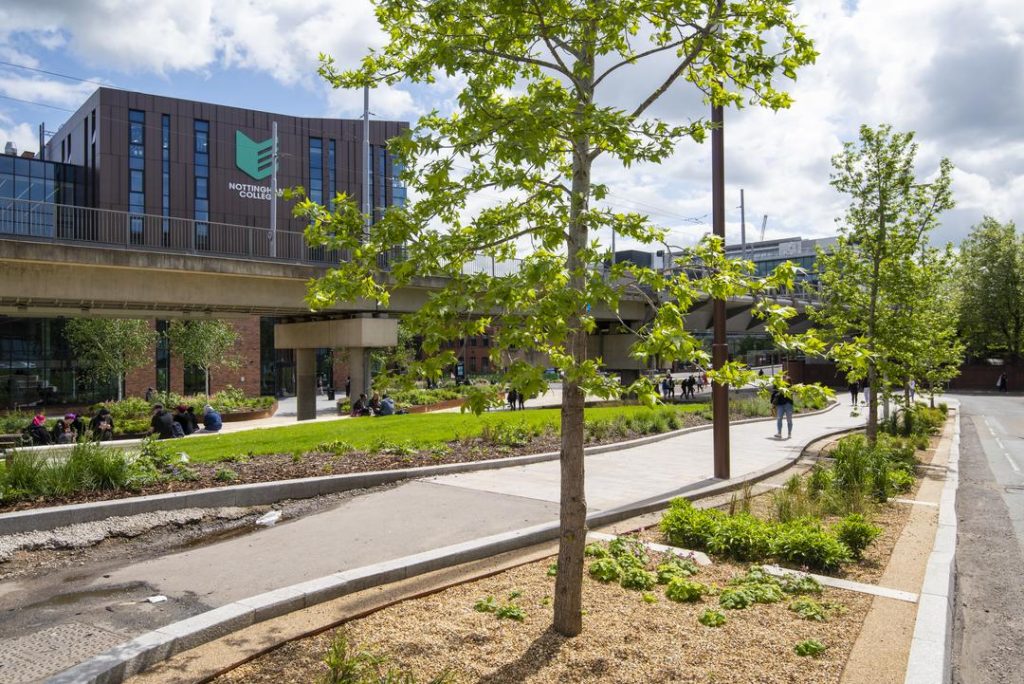
A typical fully grown tree can absorb around 21kg of carbon dioxide (CO2) per year. Over a lifetime of 100 years, one tree could absorb around a tonne of CO2. As well as helping the city reduce the amount of CO2 in our atmosphere and so help to combat the harmful effects of climate change, trees provide a range of other benefits such as providing cooling shade in extreme temperatures, intercepting rainfall, reducing flooding and soil erosion – all adding to help the city be more resilient to current and future extreme weather events.
The 2021/22 tree planting season saw Nottingham Green Guardians and partners plant over 10,000 trees across the city towards the ambitious target of planting 50,000 by 2023.
Councillor Sally Longford, Portfolio Holder for Energy, Environment and Waste Services, said: “We are working extremely hard locally with our partners to tackle the climate crisis and become a carbon neutral city by 2028. Our ambitious CN28 target is driven by the science, and we need to act urgently to limit global warming to 1.5oC. This is why we’re aiming to be the first city in the UK to reach carbon neutrality.
“Taking action to reduce our carbon emissions has many benefits. It helps to reduce energy bills, improves health through travelling actively and improving air quality, and will protect future generations from food scarcity, extreme weather events and mass migration caused by the impacts of climate change.
“I hope that governments across the world commit to prioritising climate action at COP27 – guaranteeing greater funding, promising new legislation that protects the environment, and that schemes will be rolled out quickly.”
Wayne Bexton, Director of Environment and Sustainability, said: ‘’Following our attendance at COP26 last year, I am hopeful that COP27 will further reflect on how the empowerment of local government can be a key method in achieving net zero and tackling climate change. The delivery of innovative projects in Nottingham is something to be proud of and highlights what is possible, these projects have helped Nottingham reduce emissions by nearly 58%, which is the leading response of any UK Core City.”
Residents can find ways to reduce their carbon footprints by signing up to the Notts Green Rewards app. You can also keep up to date with the latest news on CN28 by signing up to the monthly newsletter.
Organisations and businesses can also get involved by pledging their support to Nottingham’s ambition to be carbon neutral by 2028 – find out more about the ‘We Support’ campaign.
